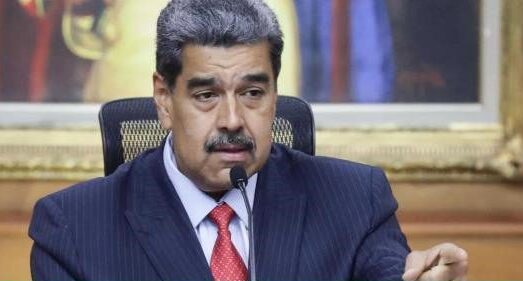BTN News: In a powerful and fiery address broadcasted across the nation, Venezuelan President Nicolás Maduro did not mince words as he directed a scathing critique towards Edmundo González Urrutia, the opposition candidate and flagbearer of the Plataforma Unitaria Democrática (PUD). Maduro accused González Urrutia of embodying “disloyalty” not only to the Venezuelan Constitution and public institutions but also to the very people he once sought to lead. The President condemned González Urrutia for abandoning his supporters after what Maduro characterized as a campaign filled with “false promises.” The President’s accusations have further fueled the already volatile political atmosphere in Venezuela, where allegations of electoral fraud continue to dominate the national conversation.
Maduro’s remarks came during a large public event in La Guaira, where he questioned the whereabouts and intentions of the opposition leader. “Where is Edmundo González Urrutia hiding? Why doesn’t he face the people? What is he afraid of?” the President asked rhetorically, in a speech that appeared to be as much an appeal to the public as it was a condemnation of his political adversary. Maduro underscored that González Urrutia’s absence from public life and refusal to comply with the legal summonses from the Venezuelan Supreme Court (TSJ) was not just a political maneuver but a blatant act of cowardice.
The conflict between the ruling government and the opposition reached a new peak when the TSJ, under the leadership of pro-Maduro judge Caryslia Rodríguez, affirmed the electoral results from the controversial July 28 elections. The Supreme Court’s decision upheld Maduro’s victory, securing him a third six-year term in office. However, this ruling has been met with widespread skepticism and outright rejection from the opposition, which claims that the election was marred by significant irregularities. The opposition, led by the PUD, continues to assert that González Urrutia was the rightful winner, citing what they claim is evidence from “83.5% of the electoral records” that purportedly show a clear victory for their candidate. This claim has garnered support from a number of international observers and governments, further complicating the post-election crisis.
Despite these allegations, Maduro remained firm in his stance, emphasizing the legal repercussions of González Urrutia’s refusal to attend the TSJ hearings. The Supreme Court, responding to a request from Maduro himself, had called upon González Urrutia to participate in a process of “verification” of the election results. When González Urrutia failed to appear, the court declared him in contempt, a decision that Maduro insists will carry severe legal, penal, and administrative consequences.
González Urrutia, for his part, has vehemently rejected the Supreme Court’s ruling, arguing that the TSJ does not have the authority to validate the electoral results—a responsibility he contends lies solely with the National Electoral Council (CNE). The opposition leader has also criticized the CNE for its delay in publishing detailed election data, which, according to the electoral calendar, should have been released by now. This lack of transparency has only deepened suspicions of electoral malpractice and has become a focal point for the opposition’s continued protests and demands for justice.
The situation remains highly charged, with no clear resolution in sight. As Maduro consolidates his hold on power, the opposition is left grappling with the fallout of a disputed election that has further polarized an already divided nation. The international community watches closely, with many wondering what the future holds for Venezuela in this ongoing saga of political tension and uncertainty. The standoff between Maduro and González Urrutia has become emblematic of the broader struggle for democracy and rule of law in Venezuela, raising critical questions about the country’s political future.


